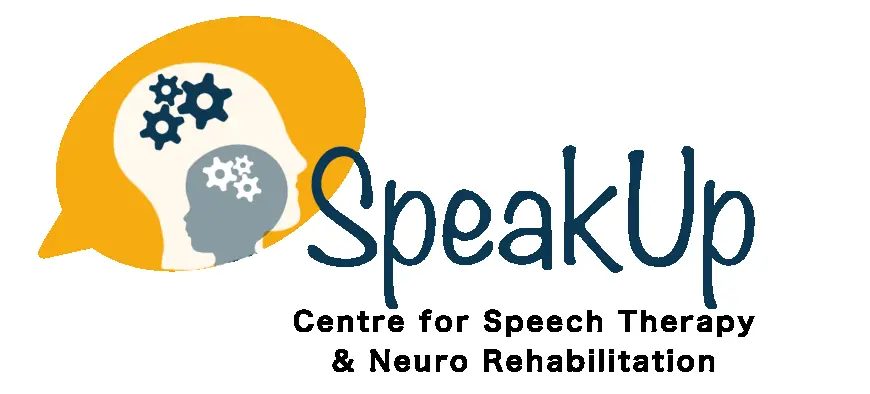How adult speech therapy creates change

Effective communication is the cornerstone of independence, social connection, and overall quality of life. For adults impacted by conditions such as stroke, traumatic brain injury, Parkinson’s disease, dementia, or voice and swallowing disorders, regaining that ability can feel like an uphill battle. That’s where speech and language therapy for adults unlocks the path to regained confidence. With personalized therapy addressing speech clarity, cognition, voice disorders, fluency, and swallowing (dysphagia), adults can rebuild vital communicative functions and flourish in both personal and professional domains. SpeakUp Centre in Bangalore embodies this mission through compassionate, expert-led interventions.
How adult speech therapy creates change
Adult speech-language therapy excels by addressing the multifaceted nature of communication disorders, blending evidence-based techniques with tailored care plans. Therapists assess articulation challenges like slurred speech or apraxia, voice issues such as hoarseness or vocal fatigue, and fluency disorders including neurogenic stuttering or cluttering. They also tackle cognition-based hurdles—memory, attention, executive functioning—that often arise due to neurological events. Behavioral strategies embed therapy into daily routines, while swallow rehabilitation restores safe eating and drinking patterns. Together, these targeted approaches enable adults to improve intelligibility, express thoughts, and reduce frustration in social and professional interactions.
Common conditions treated by adult speech therapists
A wide range of medical conditions warrant speech and language therapy for adults. From stroke-induced aphasia or dysarthria, Parkinson’s-related speech challenges, and traumatic brain injury to degenerative illnesses like Alzheimer’s, therapy addresses the underlying impairments. Voice disorders—be it vocal cord dysfunction, spasmodic dysphonia, or post-laryngectomy rehabilitation—are also within scope, as are swallowing impairments following surgery or neurological changes. Each therapy plan is informed by a thorough clinical assessment, ensuring that treatments address both the physical and emotional dimensions of communication recovery.
The role of cognitive-communication therapy
Rehabilitation after brain injuries or neurological illnesses often involves rebuilding cognitive-communication skills. This includes attention training, memory enhancement, problem-solving guidance, and executive function improvement—skills that underpin coherent expression and understanding. By using real-life scenarios, task-based exercises, and compensatory strategies, speech-language pathologists help individuals navigate daily conversations, work requirements, and social tasks with greater ease and confidence. Therapy focuses on strengthening both comprehension and expression, fostering outcomes that resonate beyond the clinic in everyday life.
Restoring voice and swallowing safety
Voice disorders and dysphagia significantly impact quality of life, yet adult speech and language therapy provides effective pathways to regain both function and safety. Voice therapy restores clarity and projection through breath management, pitch modulation, vocal hygiene, and strengthening exercises. Swallowing interventions involve oral motor therapy, safe swallow techniques, and diet modification to reduce aspiration risk. Integrating these therapies ensures that clients not only communicate better but also swallow safely—crucial for nutrition and overall health.
Enhancing fluency, articulation, and prosody
Disorders such as stuttering, cluttering, apraxia of speech, or articulation deficits require dedicated speech therapy strategies. Techniques like breath control, speech pacing, oral motor coordination, and phoneme articulation drills are implemented through consistent practice. Clients with monotone or prosody issues benefit from exercises that restore vocal inflection and expressiveness, promoting more dynamic speech. Progress in these areas translates into clearer, more confident communication in personal and professional contexts, helping individuals connect without hindrance.
Delivering therapy through convenience and flexibility
Recognizing the complexities of adult lives, leading speech therapy providers now offer teletherapy, home visits, and tailored scheduling options. Remote sessions bring therapy directly into clients’ homes via secure, interactive platforms—perfect for mobility challenges or busy schedules. Home visits provide in-person, personalized care for those with accessibility barriers. These flexible models maintain therapy continuity, reduce dropout risk, and ensure that adults receive consistent, effective interventions regardless of limitations.
Integrating multidisciplinary care for holistic healing
Communication challenges rarely exist in isolation. A primary stroke or neurological injury may require allied support from occupational therapists, physiotherapists, psychologists, or behavior therapists. Multidisciplinary collaboration ensures that speech therapy becomes part of a comprehensive rehabilitation ecosystem—sensory integration, cognitive training, emotional support, and physical recovery all work in concert. This integrated care model allows clients to maximize outcomes, drawing on coordinated expertise to rebuild their abilities and resilience.
Real-world impact: adult client success stories
Imagine a professional who struggled to communicate effectively after a stroke. Through targeted therapy—rebuilding articulation and cognitive clarity—they returned to leading client meetings and resumed work duties. Or consider an elderly patient with dysphagia: with swallow therapy and modified diet techniques, mealtimes are now safe, enjoyable, and shared with family. Adults with voice disorders—once limited to whispering—have regained strong, healthy vocal expression through voice rehabilitation. These stories underscore the transformative potential of adult speech and language therapy, bringing improvement in both function and quality of life.
Choosing the right speech therapy program
When exploring adult speech-language therapy, look for clinics offering licensed speech-language pathologists, personalized treatment plans, and flexible delivery options. Transparent goal-setting, regular progress tracking, and involvement of caregivers or families enhance therapy success. Clinics that integrate teletherapy, offer home visits, and coordinate multidisciplinary support deliver both convenience and comprehensive care. Prioritizing empathy, clear communication, and respect ensures that clients are treated not just as patients, but as individuals regaining their voice in a safe and supportive environment.
Conclusion: a trusted partner in communication recovery
Speech and language therapy for adults opens the door to restored clarity, confidence, and connection. Through services spanning articulation, cognition, fluency, voice, and swallowing, expert therapists empower individuals to reclaim daily conversation, social engagement, and personal fulfillment. Clinics that offer compassionate, evidence-based, client-focused care—while adapting to adult lifestyles through teletherapy and multidisciplinary teams—create the most meaningful healing journeys. At the heart of this mission stands Speakup Centre, a dedicated provider offering specialized adult speech and language therapy services that foster independence, rebuild communication, and restore confidence with both expertise and empathy.
What's Your Reaction?
 Like
0
Like
0
 Dislike
0
Dislike
0
 Love
0
Love
0
 Funny
0
Funny
0
 Angry
0
Angry
0
 Sad
0
Sad
0
 Wow
0
Wow
0
















































